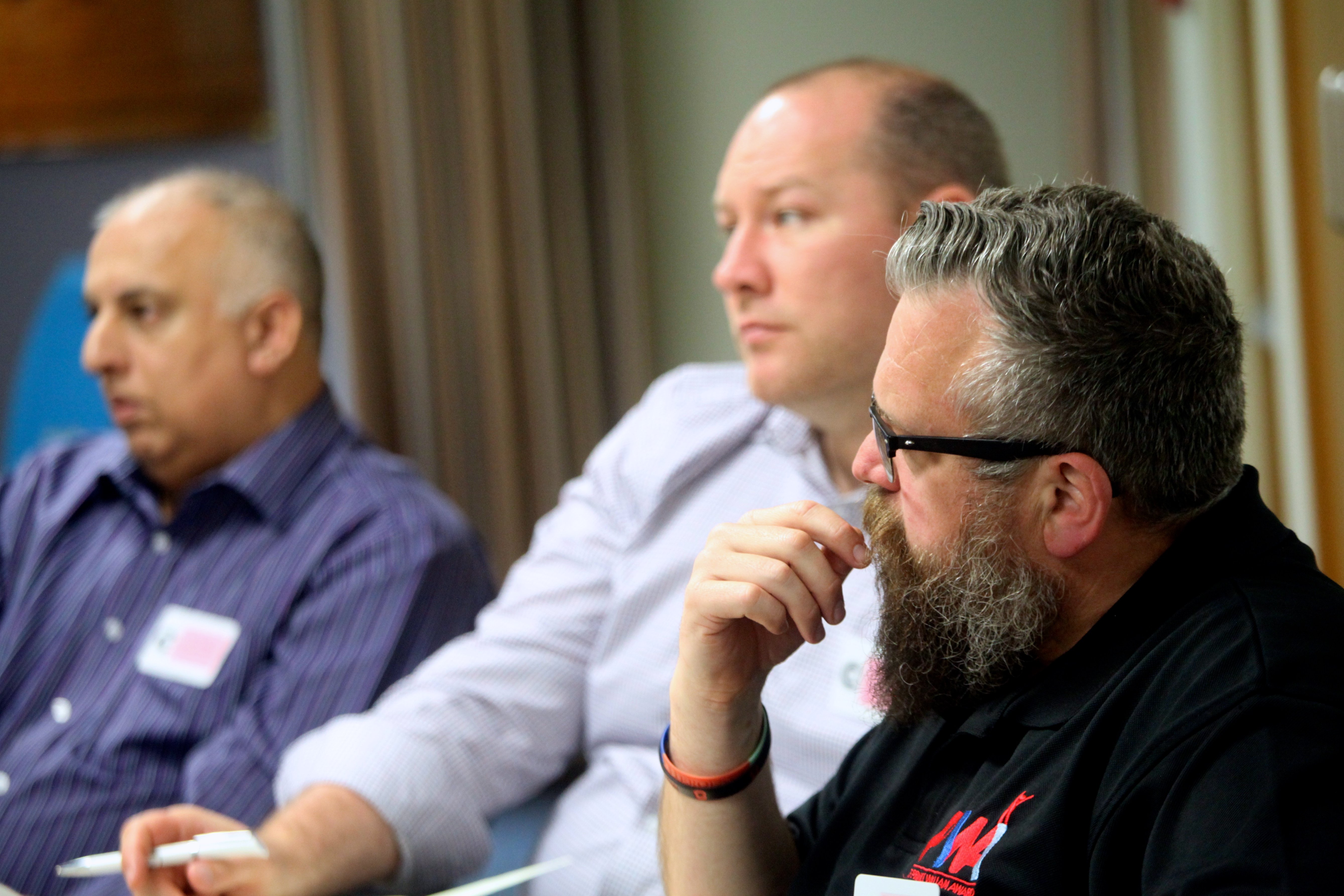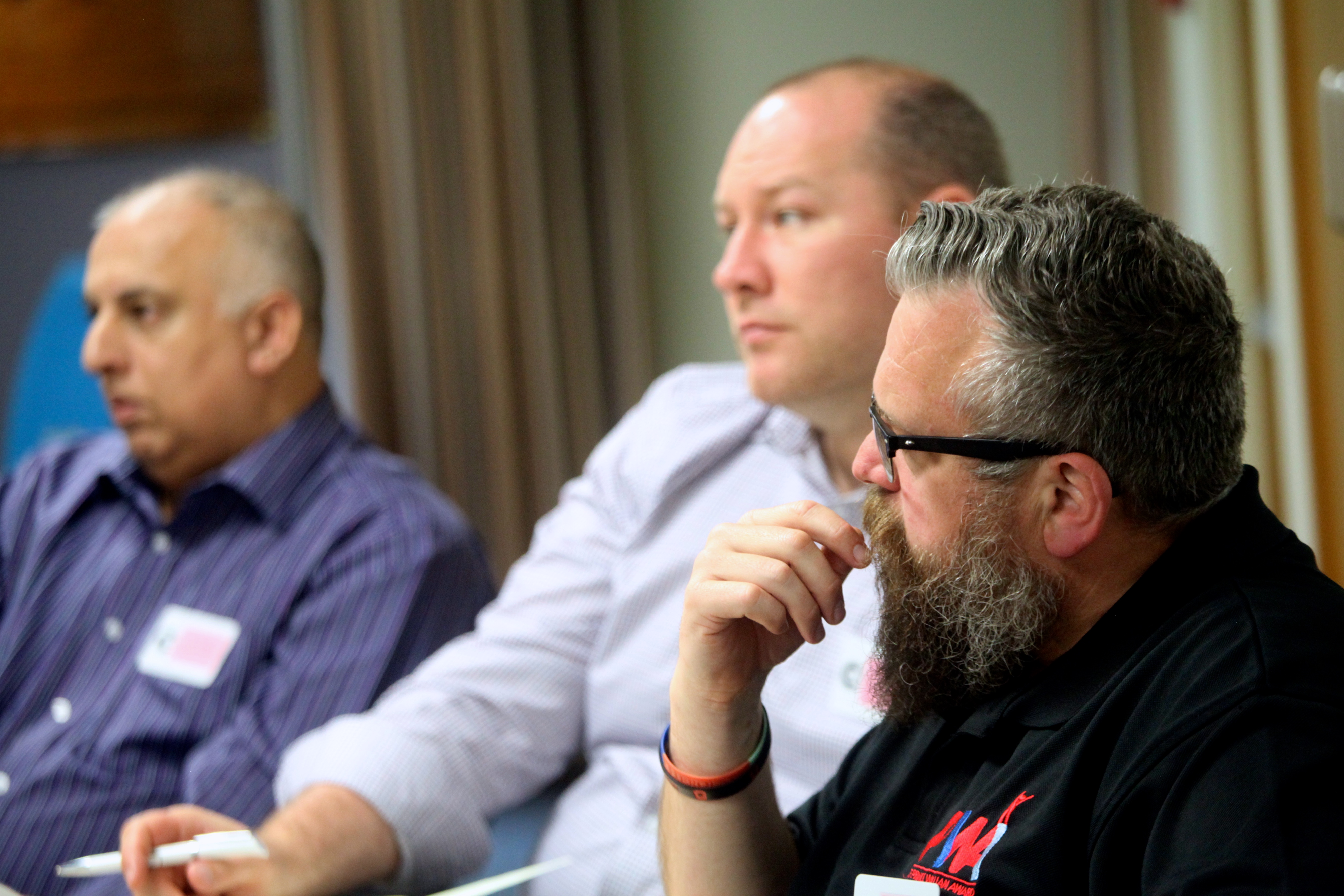
Trust. Now there’s a scary word, right? Trusting other people to do what you know you could do well, but shouldn’t be focusing your attention on right now. Trusting your team to carry out tasks for which they are trained and equipped, but of which you feel strong ownership. It’s not easy.
But failing to trust those around you could be a barrier that is holding you back, as one participant on our Developing Leadership Practice (DLP) programme found. Mark Jones, Director of Multi-room at Winvic Construction, tells how taking time out from his day-to-day responsibilities gave him the fresh focus and impetus he needed to delegate more, freeing him up to focus on the bigger issues in his business.
“We can all get blinkered into thinking we’re doing a great job,” he said. “But the training makes you think about how you are managing your team and how to get the best out of people you work with.”
The approaches Mark learned during his training helped him to re-evaluate the mechanics of his management of line reports and consider more deeply the pressures he and his team were facing in an industry where small errors can have major implications for project costs and client relationships.
“Our estimating team generally has six weeks to tender complex building projects ranging in value from £10 million up to £80 million,” he said. “There is an extreme amount of pressure to ensure the project has been thoroughly reviewed in terms of logistics, ‘buildability’ and costs. When signing off tenders, I place a considerable amount of trust in my colleagues while evaluating the potential risk to the business.”
“Taking the time to listen to my team [was] the best advice,” he added. “And taking time out to review what I’m actually doing. It was in one of the smaller team meetings that I realised, when you share a difficult task with others, you’ll get a number of different opinions or solutions that can allow you to make an informed decision.
“In terms of my own time management, [attending the] DLP [programme] encouraged me to delegate more work, freeing me up to mentor our staff. This has enabled me to focus on the bigger business needs, including analysing risk, looking at innovation, reviewing the current market and securing future work.”
An example of one such issue could be the challenges that arise when working with less experienced team members.
“By dedicating time to real-world situations and challenges faced by its individual participants in their day-to-day work – no matter how minor – rather than focusing on general principles of leadership, the DLP programme helps remove issues that are a drain on management, energy and time.”
Mark said: “I see a lot of young people joining the company straight out of university and, within a year, they expect to be either promoted or carrying out more fulfilling duties. When I started in the industry, we spent years learning our trade from senior staff, doing what we thought at the time to be quite mundane tasks. But when I look back, learning the basics has actually strengthened the key skills that I now use in business.
“In my experience, a common issue we find with less experienced team members is the lack of communication skills when dealing with people face-to-face or on the phone. Their enthusiasm is great, but sometimes they are too quick to write an email instead of picking up the phone and having a direct conversation. We try to teach them that developing a rapport will always help when you have time pressures to deliver a task or secure a better deal.”
Cranfield’s Developing Leadership Practice programme is designed to help Directors, and managers, explore three key leadership practices using a blended and networked learning approach so that you can become the best leader you can be.




